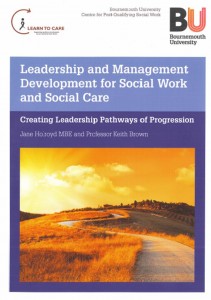 To assist staff in preparing their applications for the internal PhD funding competition John Wakeford, Director of the Missenden Centre, is coming to BU to deliver 2 one day workshops on 31st January and 1st February. There are only a small number of spaces remaining on each day so if you would like to come along please register here asap.
To assist staff in preparing their applications for the internal PhD funding competition John Wakeford, Director of the Missenden Centre, is coming to BU to deliver 2 one day workshops on 31st January and 1st February. There are only a small number of spaces remaining on each day so if you would like to come along please register here asap.
The workshop will run from 9:30am to 4:30pm and it is an excellent chance to pick up some advice from John on bid writing in general as well as honing your application for the studentships. The first 6 draft applications received by John will be reviewed as part of the day. A copy of the draft programme of the day is below.
If you have any queries about the day please contact Susan Dowdle.
Draft programme
9.15 Coffee and Registration
9.30 Institutional context – information on the studentships and the support of the Graduate School. Questions.
Prof Tiantian Zhang – new Head of Graduate School
Dr Fiona Knight – Graduate School Manager
10.00 Agenda sharing (participant introductions and identifying concerns and priorities to be covered).
10.30 Introduction – National policy and recent developments. Questions and discussion.
10.45 Coffee break
11.00 Reviewing good research bid. Teams act as reviewers and prepare outline of comments. Plenary feedback from John Wakeford and teams.
12.00 What to do before applying.
12.30 Lunch. Groups discuss bidding narrative.
13.15 Plenary discussion of points arising from narrative.
13.30 Advising colleagues on draft applications. Teams act as critical colleagues and prepare advice on drafts direct at different agencies. Plenary feedback. Questions and discussion.
14.30 Coffee break
14.45 Writing a good application.
15.30 Reflecting after having an application turned down.
16.00 Action planning: individual participants draw up plans for progressing own research. Participants make suggestions to the university to help those bidding for funds.
16.25 Evaluation
16.30 Close

 The day is designed for early career researchers with no, or very little, experience in preparing research applications. It covers the fundamental structure and arguments inherent within any research proposal and initially develops the principle ways to achieve this – whilst at the same time encouraging the necessary overarching approach.
The day is designed for early career researchers with no, or very little, experience in preparing research applications. It covers the fundamental structure and arguments inherent within any research proposal and initially develops the principle ways to achieve this – whilst at the same time encouraging the necessary overarching approach.
 The Enterprise Training Programme is an established training scheme for researchers from any university wanting to learn more about business and the commercialisation of research.
The Enterprise Training Programme is an established training scheme for researchers from any university wanting to learn more about business and the commercialisation of research.
 Vitae
Vitae
 With many of the leading journals in the field of Tourism and related studies now recording rejection rates in excess of 90%, the pressure is on all of us with an interest in publishing in such journals to enhance our level of engagement with the variety of alternative research methodologies available to us and to deepen our level of knowledge of those deemed most appropriate; as well as to improve the level of rigour with which we apply them in our work! In addition to constructive criticism from panel members of the level of conceptual and theoretical engagement in many papers reviewed for RAE2008, feedback from reviewers points to methodological weaknesses in papers submitted and a sense of frustration over the a lack of rigour and an apparent unwillingness to try contemporary approaches.
With many of the leading journals in the field of Tourism and related studies now recording rejection rates in excess of 90%, the pressure is on all of us with an interest in publishing in such journals to enhance our level of engagement with the variety of alternative research methodologies available to us and to deepen our level of knowledge of those deemed most appropriate; as well as to improve the level of rigour with which we apply them in our work! In addition to constructive criticism from panel members of the level of conceptual and theoretical engagement in many papers reviewed for RAE2008, feedback from reviewers points to methodological weaknesses in papers submitted and a sense of frustration over the a lack of rigour and an apparent unwillingness to try contemporary approaches.  Richard Brooks and Katherine Timms, Officers from CRE Operations, recently attended a training session called Total Proposal run by Aron Cronin, director of GIC limited. GIC limited is an international management and business consultancy specialising in business development and training services.
Richard Brooks and Katherine Timms, Officers from CRE Operations, recently attended a training session called Total Proposal run by Aron Cronin, director of GIC limited. GIC limited is an international management and business consultancy specialising in business development and training services. 













 REF Code of Practice consultation is open!
REF Code of Practice consultation is open! BU Leads AI-Driven Work Package in EU Horizon SUSHEAS Project
BU Leads AI-Driven Work Package in EU Horizon SUSHEAS Project Evidence Synthesis Centre open at Kathmandu University
Evidence Synthesis Centre open at Kathmandu University Expand Your Impact: Collaboration and Networking Workshops for Researchers
Expand Your Impact: Collaboration and Networking Workshops for Researchers ECR Funding Open Call: Research Culture & Community Grant – Apply now
ECR Funding Open Call: Research Culture & Community Grant – Apply now ECR Funding Open Call: Research Culture & Community Grant – Application Deadline Friday 12 December
ECR Funding Open Call: Research Culture & Community Grant – Application Deadline Friday 12 December MSCA Postdoctoral Fellowships 2025 Call
MSCA Postdoctoral Fellowships 2025 Call ERC Advanced Grant 2025 Webinar
ERC Advanced Grant 2025 Webinar Update on UKRO services
Update on UKRO services European research project exploring use of ‘virtual twins’ to better manage metabolic associated fatty liver disease
European research project exploring use of ‘virtual twins’ to better manage metabolic associated fatty liver disease